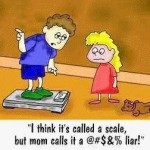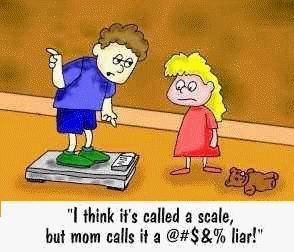Well all know someone who has lost weight and put it back on…and then some. We hear phrases that 99% of people fail on a diet and put the weight back on. This however isn’t a scientific claim as much as it is an assumption.
Weight loss isn’t a straight line but rather a series of peaks and valleys. People can ‘go on a diet’ to get rid of a chunk of weight and then try to maintain that new lower weight.
When you look at it from this standpoint there are 3 ways to eat.
1) The way you can eat that causes you to gain weight
2) The way you can eat that causes you to lose weight
3) The way you can eat that keeps your weight stable
These must be viewed as 3 distinctly separate phases and treated differently. Most weight loss programs and studies focus on getting people out of the first phase and into the second phase, which is pretty easy. The only real action needed to cause weight loss is a reduction in calories eaten until body weight starts to fall.
The real trick is figuring out how phase 3 works and keeping the weight off. And this is where many diet interventions fail. Most people can fight their way through a 10-12 week hard diet, but it’s the months and years following the hard diet that are trickier to navigate.
Once the hard diet part is over, you’re not relying on a strict deadline or an ‘iron will’ to get through the next month, but instead you’re looking at a whole new way of eating from here on out. What happens after the hard diet is rarely studied, but a recent research paper did just that.
In a study published Oct 2011, researchers put people on a hard low calorie diet for 10 weeks then followed up with their subjects a full year later to see how much weight they kept off and test multiple hormones and other markers of health.
This same paper has been reviewed by various fitness commentators who seem to have selectively chosen to spin the information from this study in a negative light vs a positive light. This one sided approach to reporting the science seems to be rooted in an academic and political will to try and prove that obesity is a disease and out of our control to deal with.
In today’s podcast, we review this research paper and show you what the results really say and how the fitness media and even the researchers themselves distort their reporting in order to put a doomsday spin on the findings.
This is an important lesson in diet and fitness science reporting and how information can be twisted and used to tell a very different story from what the facts say.
John
Login and Download Podcast Here
For more information as well as how to get access to Adonis UNCENSORED, click the link below:
Adonis UNCENSORED Premium Podcast

